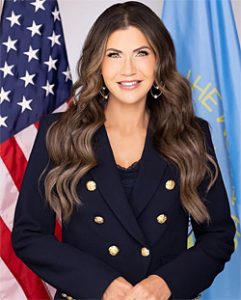Is it fair to say that Israel is an “apartheid state”?
by Edward Ulrich, June 5, 2024
This article is a summary of arguments both claiming that Israel is an “apartheid state” and claiming that it is not. It is mostly a summary of a 2023 Vox article that explains the matter, and I have added additional information and commentary.
[Note: I found the information in the Vox article to be very thorough, so I have decided to summarize it here. I don’t agree with many of the articles on that media outlet however, where a lot of them have an extreme pro-Establishment bias such as this ridiculous article that claims the U.S. government has not been going far enough with its persecution of Donald Trump.
I think it is interesting that such a pro-Establishment media outlet would publish an article that is as critical of Israel as this one is, which I think demonstrates the fact that the global elite are not exclusively “Jewish” as some activists try to claim they are. (Additionally most of the human rights groups mentioned in the article that criticize Israel are controlled by the political Establishment, as the UN also is.)]
What is an “apartheid state”?
The term “apartheid” is translated into “apartness” in the Afrikaans language, and it refers to the previous system in South Africa that segregated white and black people in its society, where laws deprived black people of access to land, voting rights, and the ability to move freely across the country. (Note the article I’m summarizing capitalizes the word “black” while not capitalizing “white.” There is actually a ridiculous movement in the Establishment media to do that!)
In the past 50 years, international bodies such as the UN put forth multiple definitions of apartheid, including the UN’s “1973 International Convention on the Suppression and Punishment of the Crime of Apartheid,” and the ICC’s 1998 definition of apartheid which is more commonly known as “The Rome Statue,” which defines it as “inhumane acts ... committed in the context of an institutionalized regime of systematic oppression and domination by one racial group over any other racial group ... and committed with the intention of maintaining that regime.” Under international law engaging in those activities is considered a “crime against humanity.”
A SUMMARY OF ARGUMENTS CLAIMING THAT ISRAEL IS AN “APARTHEID STATE”
In recent years many human rights organizations and legal experts have been claiming that Israel’s policies fit the definition of apartheid, where the criticism is essentially always aimed at the occupied Palestine territories, and sometimes it is also aimed at the policies within Israel’s borders.
Both Israeli and Palestinian human rights groups such as Al-Haq and B’Tselem have been critical of Israel’s policies and they label it is as apartheid, along with people such Michael Lynk who was the UN special rapporteur focused on human rights in the occupied Palestinian territories. Such people make those claims based on the following “three-part test” that is based on both the 1973 convention and the Rome Statute:
1. The state implements systematic institutionalized racial oppression and discrimination.
2. The state has an intent to maintain the dominance of one racial group over another.
3. The state commits inhumane acts as an integral part of the process.
1. “The state implements systematic institutionalized racial oppression and discrimination”
Within the occupied territories, Israeli settlers have a different set of legal rights than Palestinians do, as explained in the following points:
[Note however that there have been legitimate security reasons for some of these measures, as explained in the last section of this article.]
— Israeli settlers in the territories can vote in Israeli elections, while Palestinians cannot.
— Israeli settlers are able to freely travel across the occupied territories, and into Israel, while Palestinians in Gaza and the West Bank cannot. Palestinians must apply for permits to travel which are difficult to obtain. Most Palestinians in Gaza are unable to leave the area at all, while ones in the West Bank face military checkpoints in order to travel in and out of the area.
— Israeli settlers are tried in Israeli civilian courts if they are accused of a crime, while Palestinians are tried in Israeli military courts which have a very high conviction rate and limited rights of due process.
— Israeli settlers have the freedom of political speech and protest, while Palestinians have those rights restricted.
— Palestinians sometimes have their land seized to be used for Israeli settlements and infrastructure.
— Palestinian areas in the West Bank are walled off and isolated from each other, and some roads are segregated for Palestinian and Israeli traffic.
Palestinian citizens of Israel have a much wider set of rights than non-Israeli residents in the occupied territories, but in some ways they are still second class citizens:
— Palestinian Israelis have the ability to vote in Israeli elections and they can even serve as politicians in Israel’s Knesset, which is its parliament.
— Palestinian Israelis have limited opportunities to own land and build homes due to zoning restrictions that limit expansion, and if they attempt to build homes without being properly zoned to do so they risk having their homes demolished.
— Human rights groups claim that Palestinian Israelis are subject to evictions in order to clear the way for more Jewish-majority neighborhoods.
— 1950 legislation called “The Law of Return” enables any Jewish person to move to Israel to become a citizen, while Palestinians don’t have that right even if their families were previously displaced from the area that is now within the borders of Israel.
— Almost all Jewish Israelis are required to serve in the military, however Palestinian Israelis are not required to do so, so many don’t. However citizens who don’t serve in the military are deprived of many social benefits, and the few Jewish Israelis who are exempted from serving have access to certain subsidies that non-military Palestinians do not.
— While they are granted “citizenship,” Palestinian citizens of Israel are denied a “nationality,” establishing a legal differentiation from Jewish Israelis. That distinction matters because many policies related to issues such as immigration are tied to nationality rather than only citizenship.
2. “The state has an intent to maintain the dominance of one racial group over another”
In 2018, Israel had passed what is known as the “Nation-State law” that prioritizes the rights of Israeli Jewish residents over the rights of the other groups. The law states that the right to “national self-determination in the State of Israel is unique to the Jewish people,” it says “the state views Jewish settlement as a national value and will labor to encourage and promote its establishment and development,” and it also removed the designation of Arabic as being an official language.
Israeli government officials such as Prime Minister Benjamin Netanyahu regularly express the intent to maintain the dominance of Judaism in the country. For example in 2019 Netanyahu stated, “[Israel is] the national state, not of all its citizens, but only of the Jewish people.”
Outside of Israel’s borders, the Israeli government has supported what UN leaders call “illegal settlements” in the occupied territories which has displaced many Palestinians. For example, a 2023 UN report says that 700,000 Israeli settlers are living illegally in 279 settlements in the West Bank. The influx of Israelis has also been linked to violence against the Palestinians who live in the area, and it has led to the displacement of more than 1,100 Palestinians in the area.
Michael Lynk wrote in a UN report, “Israeli political leaders, past and present, have repeatedly stated that they intend to retain control over all of the occupied territory in order to enlarge the blocs of land for present and future Jewish settlement while confining the Palestinians to barricaded population reserves.”
3. “The state commits inhumane acts as an integral part of the process”
The UN has a list of what it constitutes as “inhumane acts,” which range from “denial to a member or members of a racial group or groups of the right to life and liberty” to “persecution of organizations and persons ... because they oppose apartheid.” UN reports argue that many of the items on the list apply to Israel, as in the following points:
— The blockage of Gaza are measures that are “designed to divide the population along racial lines by the creation of separate reserves and ghettos for the members of a racial group or groups.”
— “The disproportionate killings and woundings of civilians by the Israeli military” is a case of “infliction upon the members of a racial group or groups of serious bodily or mental harm.”
— Palestinians face serious limitations of their freedom of expression and protest, which is an example of “persecution of organizations and persons, by depriving them of fundamental rights and freedoms.”
— Michael Lynk wrote in a UN report, “The most stark thing I could say to try to illustrate this is that the poorest Israeli Jewish settlement in the West Bank enjoys more political, more economic, and more legal rights than the best and most well-off of Palestinian communities living right beside them. And that is probably the starkest and most visible example of how this huge differentiation of rights favors Israeli Jews and disadvantages Palestinian Arabs.”
— Lynk’s report and other recent decisions to label Israel as an apartheid state come after decades of advocacy by Palestinian groups, and more recently by liberal Israeli groups such as B’tselem that are now describing the country as being that way.
— Recently, leading Israeli historians and scholars such as Omer Bartov, an Israeli-born Holocaust historian at Brown University, have been referring to Israeli as a “regime of apartheid” due to its behavior in the occupied territories.
A SUMMARY OF ARGUMENTS CLAIMING THAT ISRAEL IS NOT AN “APARTHEID STATE”
Despite many organizations such as the UN and human rights groups calling Israel an apartheid state, many pro-Israel groups deny that claim, such as the ADL, the Biden Administration, the US House of Representatives, and the European Commission.
Usually such groups claim that Israel is justified in its actions due to “security reasons,” and they also point to the fact that Palestinians who are living in Israel have mostly the same rights as Jewish Israelis do. For example they claim that travel restrictions between Israel and the West Bank are necessary due to concerns about suicide bombers.
Such groups also point out that non-Jews are able to serve as politicians in the Knesset (which is Israel’s parliament), and they are able to serve in Israel’s court system including in its Supreme Court.
In a 2022 Daily Beast article, Haaretz opinion editor Anat Kaam wrote, “There are Arab citizens—citizens with full, equal rights—in the Israeli parliament, the Knesset, as well as in the Israeli court system, including the Supreme Court. There are Arab doctors, professors, policemen, teachers, and countless other professions, working side by side with Jews.”
A Trump attorney Robert Ash wrote in a 2023 paper that Arab citizens living in Israel have an opportunity to succeed, and he pointed out that Israel’s actions in the occupied territories are due to the ongoing conflicts between Palestine and the Israeli government.
(The Vox article then says that the above pro-Israel arguments fail to acknowledge the way that Israel discriminates against Palestinian citizens inside its borders as claimed by human rights groups. Following are the closing statements of the article:)
… Again, Palestinians in Israel face restrictions on the land they can buy and barriers to certain social services as well as family reunification. Inside Israel, despite Palestinians comprising around 20 percent of the population, Palestinian municipalities make up just 3 percent of its land, Human Rights Watch says. And while Palestinian citizens of Israel may have more rights than Palestinians in the occupied territories, experts emphasize that the disparities they experience are undergirded by the same institutionalized racism at their core.
“If there are 7 million Israeli Jews and 7 million Palestinian Arabs under the rule of Israel, and Israel is meant to be a Jewish state, then there is no other explanation than race and ethnicity to explain the treatment of the 5.2 million Palestinians under occupation without rights and the 1.8 million Palestinian citizens of Israel with second-class rights,” says Lynk. “None of this is acceptable under any modern understanding of democracy.”
There has been legitimacy to the concept of the need for security in Israel, justifying some of its policies
[Note this section is not a part of the Vox article that I have just summarized.]
Pro-Israel advocates have always cited the need for security as being the reason for its policies in the occupied territories, and in fact there is legitimacy to that claim for some of the policies.
Palestinian attitudes toward Israel and Jews have historically been openly genocidal. For example the initial Hamas Charter written in 1988 specifically called for the destruction of Israel and all Jewish people, where it cites Islamic scripture that says, “The Day of Judgment will not come about until Moslems fight Jews and kill them. Then, the Jews will hide behind rocks and trees, and the rocks and trees will cry out: ‘O Moslem, there is a Jew hiding behind me, come and kill him.’”
Israel left the Gaza Strip entirely in 2005, after which Palestinians soon voted Hamas into power, where the group took totalitarian control of the region and engaged in terrorist attacks against Israel such as rocket attacks and suicide bombings. This led to Israel implementing a blockade of the Gaza Strip where entry and exit from the area are now prohibited from the sea and air, and the flow of goods and people are now restricted.
This video that was made in 2021 explains the harmful behavior of Hamas towards Palestinians.
Of course not all Palestinians support Hamas, but many do. A December 14, 2023 Reuters poll claims that 72% percent of Palestinian respondents said they believed the Hamas decision to launch the October 7th attack of southern Israel was “correct” given its outcome so far, while only 22% said it was “incorrect.”
The goals of Hamas are ultimately “offensive” and not “defensive,” as they are based on Islamic Jihadist scripture. See this video that explains the stages of Jihad.
(Note however that there are issues due to Hamas actually being a creation of the political Establishment, which complicates the situation. But regardless of the actual source of Hamas, it is widely popular among Palestinians and other Muslims.)
This video explains that Palestinian children have been systematically taught in their public schools and elsewhere to hate Jews; where their textbooks advocate for violent Jihad and even suicide bombing, and the state of Israel is not even depicted on their maps.
This article contains video clips from a Palestinian children’s show that was created between 2007 to 2009 that focused on creating violent incitement against Jews and Westerners, including even advocating for the children in its audience to be suicide bombers
This article explains that footage exists of thousands of Palestinians celebrating when they learned about the 9/11 attacks, also explaining that most of the footage was suppressed by the Associated Press.






